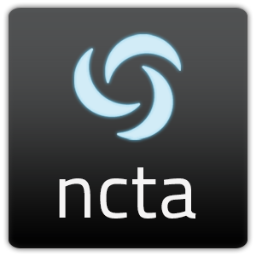NCTA to FCC: 25 Mbps Shouldn't Be Measure of Deployment
The smarter way to stay on top of the multichannel video marketplace. Sign up below.
You are now subscribed
Your newsletter sign-up was successful

The National Cable & Telecommunications Association has told the FCC that it should not up its Sec. 706 report definition of broadband to 25 Mbps downstream/3 Mbps upstream. And that if it does, the commission should make it clear that it has no regulatory "significance" outside that report.
NCTA's put forth its positions in filing with the FCC in advance of its planned vote later this month on the report and its proposed new speed definition.
"The Commission should be particularly careful to clarify that it is not endeavoring to define a distinct product market for broadband services meeting the speed benchmark," it said.
One concern is that the new speed benchmark could be used against Comcast in the Time Warner Cable merger review since it would give the combined company a greater percentage of subs since the have a greater percentage of high-speed subs.
The association says that even limited to the 706 report, the definition does not cut it, either legally or factually. It points out that the definition of advanced telecommunications capability" in the report is "“high-speed, switched, broadband telecommunications capability that enables users to originate and receive high-quality voice, data, graphics, and video telecommunications using any technology,” and says those are supportable at well below the 25 Mbps level.
NCTA also says that defining broadband in the report as only services 25 Mbps/3 Mbps and higher would breed complexity and confusion in other contexts, like network neutrality.
It says the commission's plan to impose network neutrality regs on ISP service regardless of whether or not they are delivering at least 25 Mbps "[calls] into question the relevance of any new definition of "broadband."
The smarter way to stay on top of the multichannel video marketplace. Sign up below.
Congress directed the FCC in Sec. 706 to report on the timely deployment of advanced service to All Americans, and said it could take a number of regulatory actions if it found it was not being timely deployed. The FCC has concluded a lack of timeliness in the past several reports under Democratic chairmen, much to the dismay of cable ISPs investing billions and reaching all but a small fraction of the population with service.
The higher the speed definition in the report, the smaller the number of customers show up as having broadband, and thus the continued authority to regulate in the name of universal deployment if, as the FCC has interpreted it, the requirement won't be satisfied until "All Americans" have broadband.
The FCC's most recent Sec. 706 definition is 4 Mbps/1 Mpbs, but the commission had signaled last year that it wanted to up that downstream definition to at least 10 Mbps, and is now looking at 25 Mbps, citing all the demands of apps and the Internet of things and high-definition
Contributing editor John Eggerton has been an editor and/or writer on media regulation, legislation and policy for over four decades, including covering the FCC, FTC, Congress, the major media trade associations, and the federal courts. In addition to Multichannel News and Broadcasting + Cable, his work has appeared in Radio World, TV Technology, TV Fax, This Week in Consumer Electronics, Variety and the Encyclopedia Britannica.

